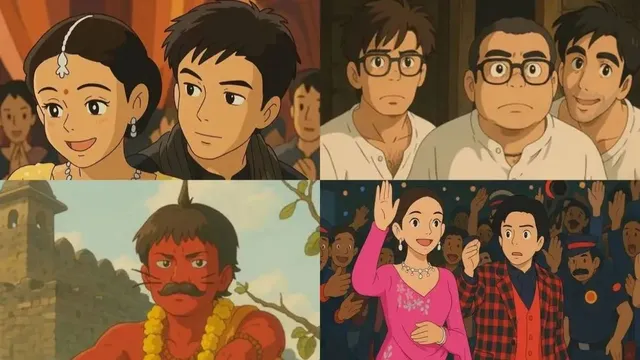- By Alex David
- Tue, 04 Nov 2025 11:33 PM (IST)
- Source:JND
Japan’s Content Overseas Distribution Association (CODA) is exerting pressure on OpenAI to go ahead and discontinue using copyrighted content from Japanese publishers in their AI training data. An international anti-piracy group by the name of CODA, which represents entertainment industry titans including Studio Ghibli, Bandai Namco, and Square Enix, alleges that OpenAI’s models—which include its video generator Sora 2—were trained on Japanese content for which no one was granted permission from copyright holders to use. The issue comes as there is more international attention to how AI companies are finding the sources for their training data, with a particular eye toward doing so without properly licensing creative works like anime, movies and video games based on popular properties like Dragon Ball, One Piece or Final Fantasy.
CODA’s Letter to OpenAI
In an official newsroom post, CODA urged OpenAI to cease training its AI models on copyrighted material owned by its member companies. The organisation also asked OpenAI to address specific claims of copyright infringement linked to content generated by Sora 2. CODA stated it had confirmed that many of Sora’s outputs closely resemble Japanese works, suggesting the model’s training data may have included such material.
ALSO READ: Windows 11 In Focus, As Windows 10 Support Ends: What Will Be Next With Windows 12
CODA emphasised that replicating content during the AI learning process can itself constitute copyright infringement under Japanese law. This marks one of the strongest statements yet from the association against AI companies using copyrighted works without permission.
Dispute Over “Opt-Out” vs. “Opt-In” Policy
The letter also criticised OpenAI’s earlier opt-out policy, which required rightsholders to request exclusion from AI training datasets. CODA argued that Japan’s copyright system operates on a prior-permission basis, meaning creators must give consent before their work can be used in any capacity—including for machine learning.
OpenAI has since shifted to an opt-in policy, but CODA noted that post-facto objections don’t eliminate liability for any prior copyright use. The agency insists that AI firms must seek approval before using any protected content for model training.
CODA’s Two Key Demands
CODA outlined two formal requests to OpenAI:
1. Immediately stop training AI models on copyrighted materials belonging to CODA’s member companies.
2. Answer openly and in good faith to any claims and queries from Japanese publishers about those who found their outputs infringed by Sora 2.
These demands underline rising hostility between AI programmers and copyright holders, especially in countries such as Japan with strict enforcement against infringing intellectual property.
ALSO READ: Reddit Faces Global Outage Affecting Thousands of Users: Fix Now Deployed
Japan’s Government Also Steps In
Japan’s government has taken notice of the ongoing debate. In September, Minoru Kiuchi, Japan’s Minister of State for Intellectual Property and AI Strategy, announced that the government had formally requested OpenAI to avoid any form of copyright infringement. This indicates that the issue has moved beyond industry concerns to a matter of national intellectual property policy.
Final Thoughts
The battle between CODA and OpenAI underscores one of the biggest conundrums in global AI: how to balance innovation with intellectual property. With increasingly sophisticated AI models that can produce photorealistic visual content, this issue of fair use of creative works becomes even more challenging. For the moment, however, OpenAI’s next act in the face of Japan’s publishing industry and government pressure could establish an important precedent for how AI companies approach copyrighted content on a global scale.

